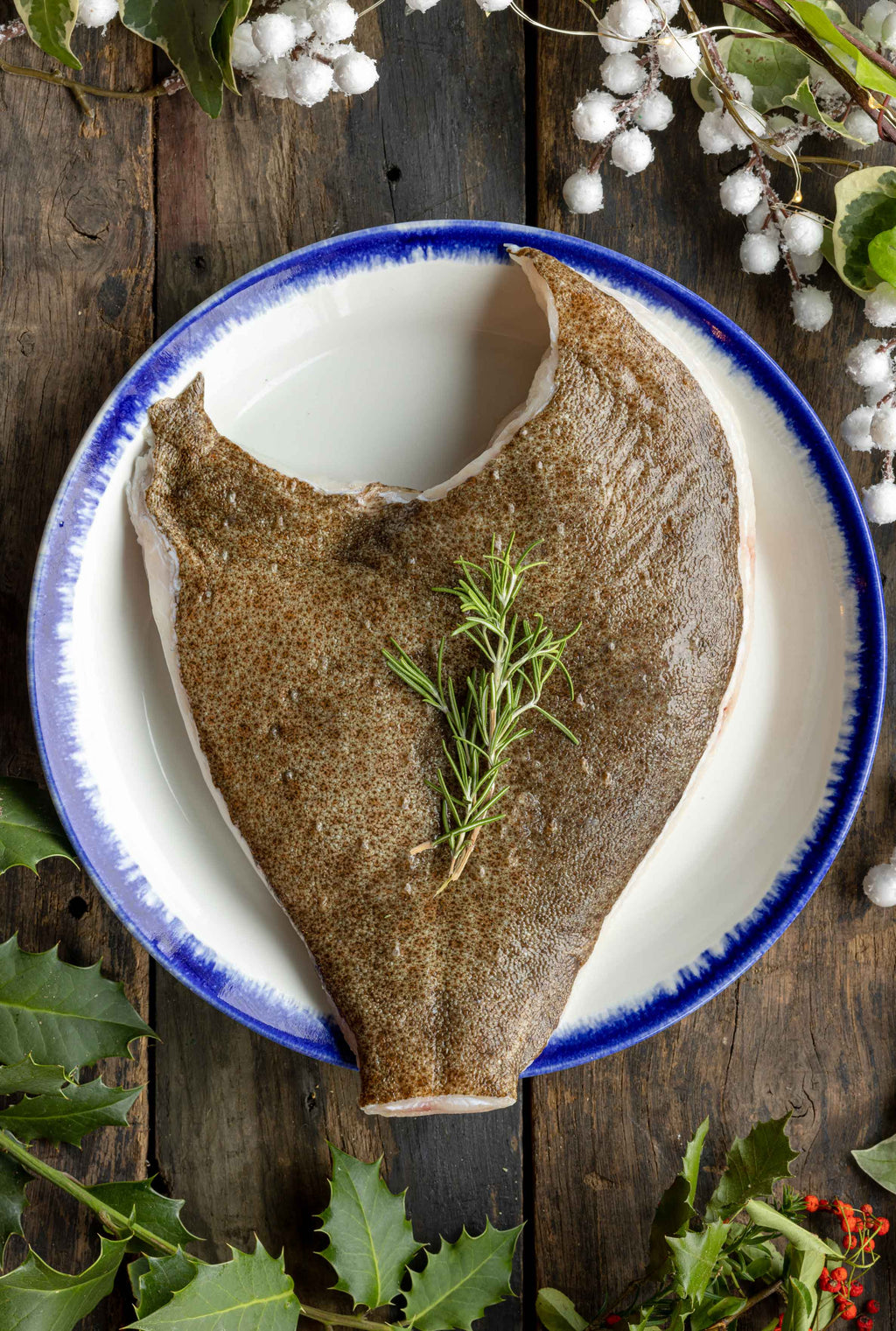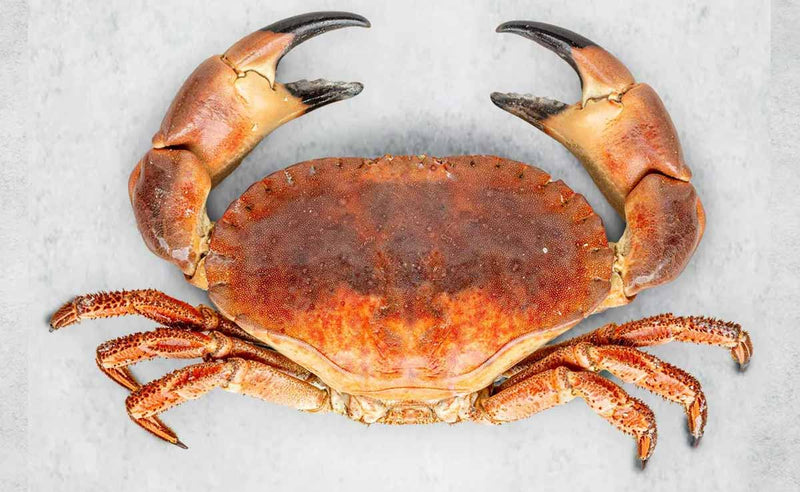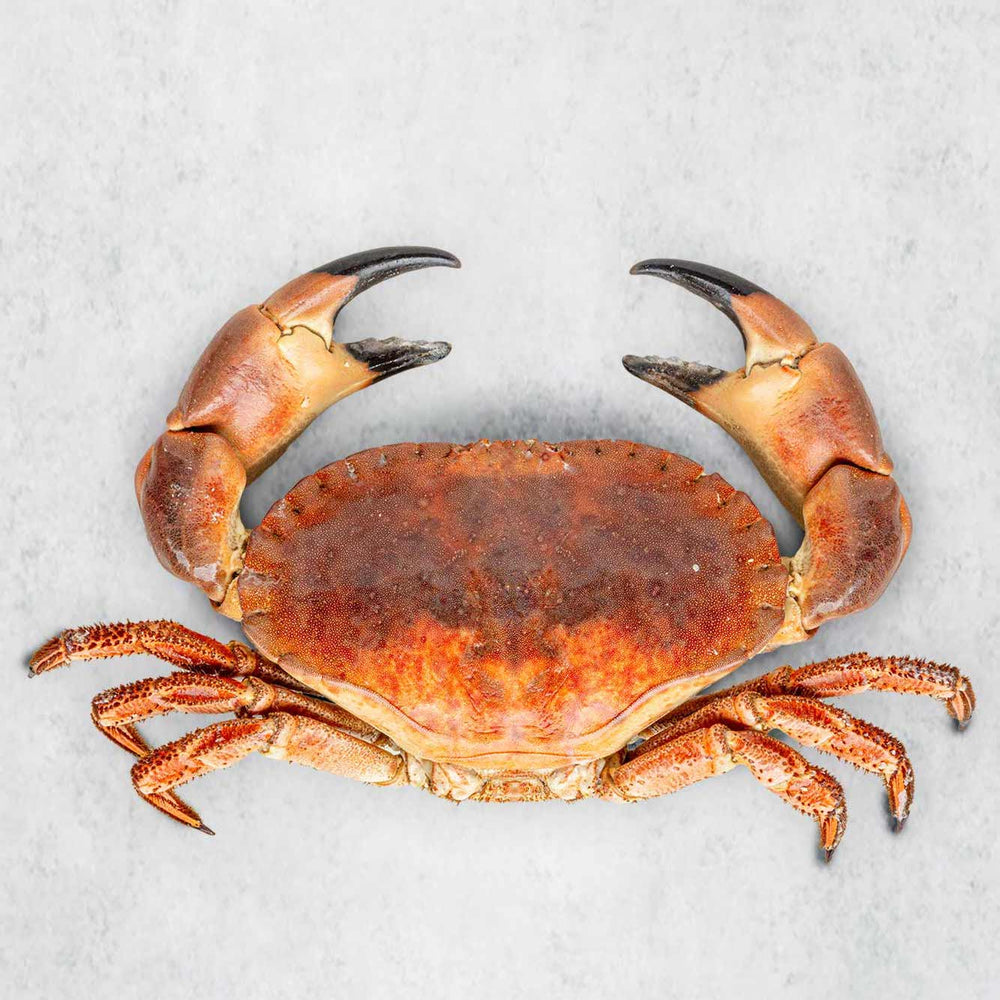Why we’re eating Turbot, not Turkey this Christmas (and other Fishmas swaps)
Last Christmas we soaked our turkey in the bathtub. For 24 hours the big bird luxuriated in a saltwater brine of herbs and spices. Then, Christmas morning we slipped her into the oven, proudly sat upon a bed of carrots, onions, and leeks, only to slice open the great dome to reveal yet another disappointing year of dry white shoe leather, made edible only with lashings of cranberry sauce and gravy.
A turkey, even done well, is often a tasteless affair and they’re not even that traditional! If you really wanted to hark back to your old English roots, you’d be skinning the face of a wild boar, pickling it, garnishing it with apples and serving it stitched back onto the skull like some horrific piggy Frankenstein.
Imported from Mexico in the 1500s, turkey was just another way for the landed gentry of the time to flex the extravagance of their Christmas feasting once they got bored of importing peacocks from India.
And even when the young William Strickland (first to import turkey into Britain) did rock up at the docks in Bristol with a big bird under his right arm, they weren’t even that much of a hit. Goose was the people’s favourite, and remained so right until Charlie Dickens wrote a Christmas Carol, when suddenly goose was out, and we all wanted to talk turkey at Christmas instead.
Well, we say enough is enough. Leave this poor Mexican bird alone, and let’s instead celebrate with something a little more native...
Time to talk Turbot
This year, we’ve gone cold turkey on turkey as we’re talking turbot instead.
The Christmas dinner is about celebration and jubilation, and we can think of few foods which quite fit that bill quite like a turbot. Unlike the off-white meat of a turkey, turbot meat is pearlescent and firm, rather than being as dry and flavourful as Rudolf’s stable straw, the turbot is furiously juicy, tender, and packed with a deep, slightly nutty flavour.
Cooking your Christmas turbot
It’s true turbot is not that easy to come across. It’s hardly ever stocked in supermarkets, and as a result, many of us have never eaten one, let alone cooked one at home. But that’s no reason to be scared.
It’s a crime to our fishing industry that we don’t eat more fish at Christmas.
Much unlike the turkey, producing something mind-blowingly delicious with a turbot is very easy. We’d recommend roasting your turbot with béarnaise butter, it’s the perfect dish for sharing and a certified crowd-pleaser.
Buying good turbot
Turbot is an esteemed fish. It’s no accident that it has earned itself the nickname: The King of the Sea. It therefore does come with a pretty price tag, which is why we see that if you’re going to spend the money on a turbot you might as well spend it on a good one.
Farming flatfish has become increasingly pervasive in onshore facilities, in places like China and Spain. Farmed turbot has become so popular in recent years that it is now more widely available than the wild-caught alternative. And while we are sure there are some ‘good’ examples out there of farmed turbot, if you’re opting for a one-day-of-the-year treat, we’d recommend going for The Real Thing.
Our wild turbot landed here in Brixham is the jealousy of the world. Few fisheries produce plumper, healthier, tastier turbot than what is caught on our South coast. We also make a point of knowing the name of the boat and crew from which the fish we sell on our Online Seafood Market. And whenever possible it would even be from our boat, the Rockfisher moored right here in Brixham Harbour. If you want the very best turbot on Christmas day, you’d be hard-pressed to find finer than those sold here.
What about the trimmings…?
We know what you’re thinking... one turkey a Christmas dinner does not make. It’s the other stuff that really makes the meal: the stuffing, the red cabbage and the pigs in blankets.
Frankly, we’re not saying don’t still do them. Roast some potatoes as a side to your roast turbot and we think you’ll discover the true meaning of the phrase ‘match made in heaven’.
Stuffing?
Meaty chestnut stuffing with your meaty, nutty turbot. It would work. Or better still, swap it out for a lobster. Who needs to waste good dinner table real estate on spiced cavity wall insulation, when you could be bringing the whole Nativity to a standstill with a Whole Cooked Lobster? From the 25th of November 2024 to the 10th of January 2025 our lobsters will be cooked fresh daily, shipped out ready for you to reach for the crackers (and by that we mean the claw crackers!)
Sprouts?
Well, nobody liked them anyway. Horrible green Belgium balls, Leigh on Sea cockles is what you want. The cockle was harvested and cultivated in Leigh on Sea aeons before anyone ever thought to afflict our farmland with the Brussels sprout. These tiny, salty-sweet nuggets of gorgeousness are a far more deserving contender in a British Christmas dinner than the Brussels sprout.
And pigs in blankets?!
Well, that’s a controversial one. According to Aldi, Brits will eat 668 million pigs in blankets this Christmas, or just over 11 per person. We’ve gone full-blown silly goose over this salty snack that was only really made popular by Delia in the 90s. And it is a good one. But we promise it won’t be missed the moment you get your chops around one of our diver caught scallops in blankets. Plucked lovingly by human hand off of the seabed, you can taste the care and devotion in the very first bite. Something about that makes us feel all warm and fuzzy like we too are wrapped in a blanket.



